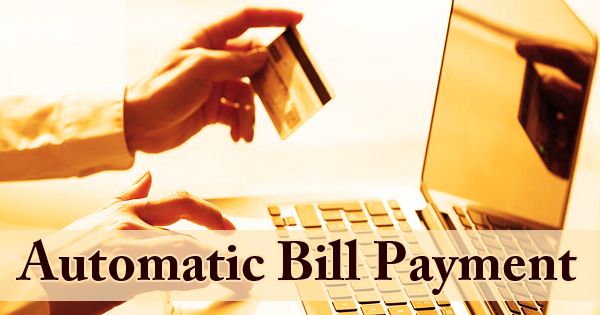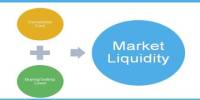Automatic bill payments are ongoing money transfers approved on a regular basis by a client to pay those vendors. It enables us to automatically pay our bills each month with our Discover card. Payments are also scheduled on a monthly basis for consumers to pay different types of bills, such as mortgages, credit card bills, revolving loans, mobile phone bills, power and water charges, streaming subscriptions, etc. Automatic payments are normally set up with the organization making the payment, but automatic payments may also be scheduled via the online bill pay service of a checking account. Our bills are charged automatically every month once we file. We may sign up to automatically get several of our bills paid, including:
- Internet service
- Wireless/home phone
- Cable/satellite TV
- Newspaper/magazines
- Health clubs
- Child care services
- Utilities
- Video streaming services
- Student Loans
- Insurance & more

(Example of Automatic Bill Payment)
Automatic bill payments are additionally utilized in B2B exchanges for repeating installments for a set help. For instance, a client may plan automatic bill payment for the start of every month to pay his vehicle credit portions. The benefits of automatic bill payments include the ease of electronic payment, the ability to prevent late payments, and the ability to protect or boost our credit score. Through making daily, prompt payments to suppliers and avoiding late fees and fines, this will help a customer boost their credit score. It tends to be planned for a wide range of installment exchanges. This can incorporate portion advances, vehicle advances, contract advances, Visa charges, electric bills, link bills, and that’s just the beginning. These installments can be robotized effectively from financial records.
A client can schedule an automated payment of bills in many ways: to list a few through their bank/financial institution, through the website of a provider, or through cloud-based accounting software. Setting up automatic bill payments means arranging to make the same payment each month with the bank holding the checking account. The arrangement of directions is normally made online by the record holder. Customary installments can be approved through the Visa, charge card, checking/bank account, or currency market account. When planned, the installment is made by the client’s monetary establishment straightforwardly to the merchant through an electronic installment framework.
Automating payments for bills is not for every person or every bill. Sometimes the vendor is allowed to charge the amount owed for the stated month to the bank account of the customer. In both cases, the person paying the bill must initiate the automatic payment of the bill and provide the appropriate details needed for automated recurring payments to be made. The client can interrupt or reschedule automatic payment at any time.
Advantages of Automatic Bill Payment:
- Saves time: Core business functions will now be expended in the time spent on manually producing bills, reaching out to clients, collecting payments, and inquiring about late payments. The billing processes can be taken care of by the computer and banking applications.
- Save money: We will prevent the price of a stamp or a pay-by-phone charge when our bill payments are automated. We will stop late fees as well. If we set up auto-pay, such as $5 off our monthly bill or a minor interest rate reduction, some billers also give a discount.
- Enhanced client experience: Automatic bill payments provide clients with a simple and timely way of clearing their ongoing liabilities and enjoying an improved user experience. A late fee is rarely paid, which facilitates contact with the client.
- Save the environment: If we automatically pay our bills, we can save the requisite paper in an envelope to send in a check. Choose electronic statements to help the world even more so that no document is sent to us. For our Patelco monthly statements, we can also do this by only updating our online banking preferences.
- Regular cash flow: Awareness of the exact date and some that will be charged to the company’s account lets it more accurately schedule and handle its expenditures.
- Increases payment security: Checked and encrypted payments via a credit card or a bank account are preferred from a security standpoint over cash or a check sent in an envelope.
- Better credit score: Automatic bill payments, in addition to convenience and time and money savings, will help a consumer boost their credit score by making daily, prompt payments to retailers and avoiding late fees and penalties. Once they know the exact date and sum of recurring monthly expenditures, consumers may be able to better control their personal finance.
Disadvantages of Automatic Bill Payment:
The drawbacks of automatic bill payments include the challenge of canceling them, the need to keep sufficient funds in our bank account, and the risk of a returned or late fee being incurred. The following possible drawbacks come with automated bill payments:
- Scheduled automatic bill payments run the risk of over-drafting the bank account for a person without a job or a regular monthly income.
- The automatic payment may bounce in case of zero balance in the checking account.
- Forgetting to cancel subscriptions will lead to steep expenditures being borne indefinitely by the client.
- Not all vendors may provide an automated method of payment.
A few people will appreciate the accommodation of mechanizing service bills, yet not every person will be open to computerizing this classification of bills since it can change broadly from month to month. When we approve automatic payments that differ in number, another problem will occur. It can be hard to cancel automated payments as well. In addition, customers can forget those automatic payments and continue to pay for services they don’t want anymore.
Information Sources:
















